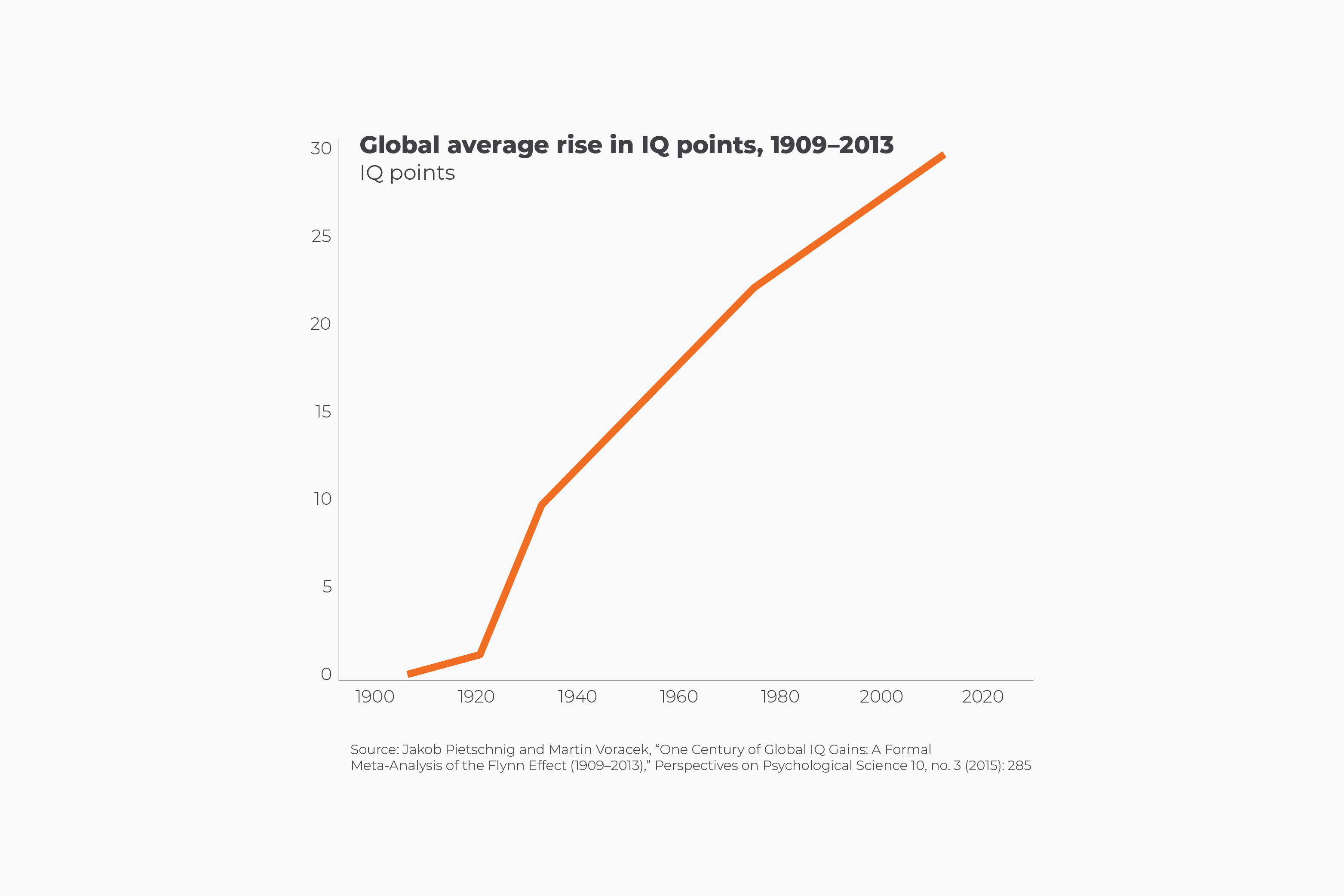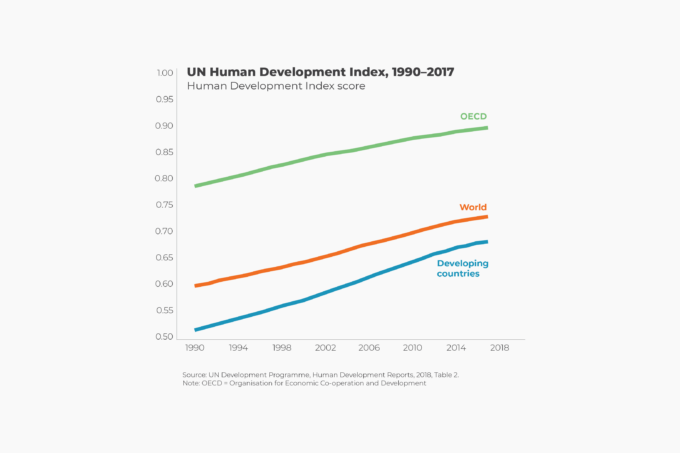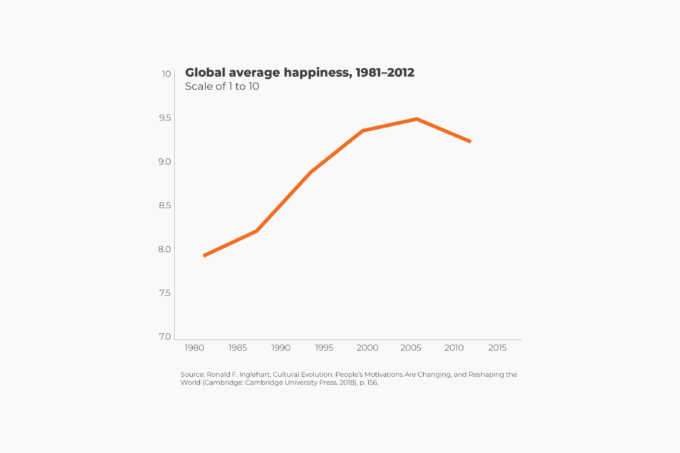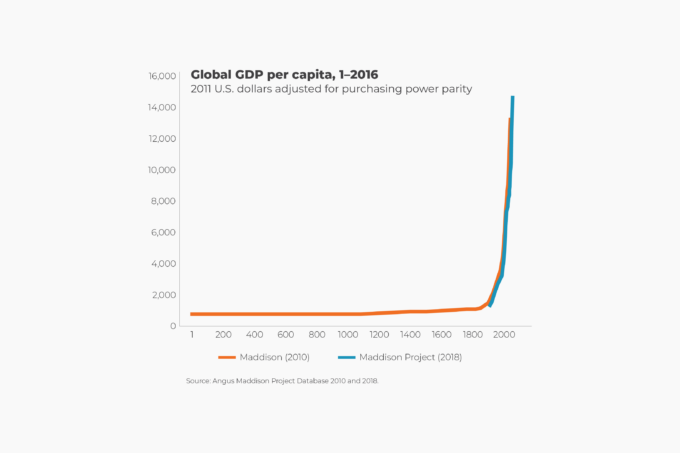In the course of the past century, people all over the world have been getting a lot smarter. In that time, the average IQ score of each generation has increased, so IQ tests are “renormed” (made harder) every 15–20 years by resetting the mean score to 100. In the 1980s, New Zealand political scientist James Flynn realized that the renorming all went in one direction: upward at a rate of about 3 points per decade. This insight meant that a person with an average score of 100 in 1965 would likely score just 85 points on current tests.
Since then, Flynn’s discovery of generally rising IQs has been validated in scores of studies encompassing both rich and poor countries around the globe. In 2015, an article in the journal Perspectives on Psychological Science measured worldwide IQ gains between 1909 and 2013, based on 271 independent samples totaling almost 4 million participants from 31 countries. The study confirmed that average IQ test scores have increased by 30 points over the past century.
What accounts for this massive increase in IQ scores? Researchers suggest a panoply of causes, including better nutrition, exposure to more mentally challenging media, more formal schooling, and, thanks to better sanitation and higher vaccination rates, the reduced load of infectious childhood diseases. Mobilizing the immune system to fight off diseases and parasites is very expensive metabolically, taking away nutrients and energy that would otherwise be used to fuel the building and maintenance of a growing child’s brain.
Some more recent studies have detected a topping out and even a slight reversal of the Flynn effect in some richer countries. However, a 2018 study reports that the United States continued to show a steady average IQ gain from 1989 to 2014 at about its historic rate of 0.3 IQ points per year.








